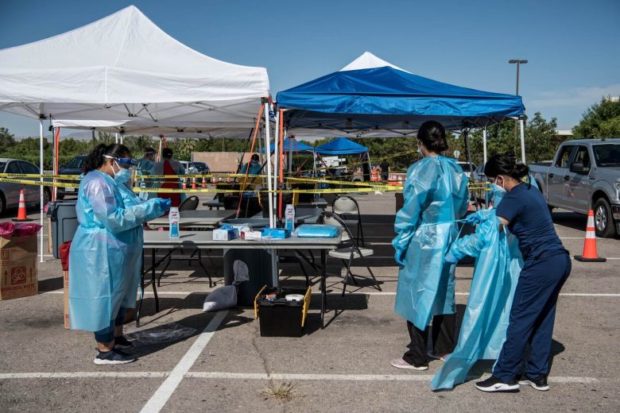
Nurses prepare themselves for coronavirus testing at El Paso Community College Valle Verde campus, on July 21, 2020. AFP via The Straits Times/Asia News Network
SINGAPORE — Infodemics, often including rumors, stigma and conspiracy theories, have been common since the early days of Covid-19 and occurred in waves, according to the American Society of Tropical Medicine and Hygiene.
This could have serious implications for the health of individuals and community efforts to contain the pandemic, if prioritized over evidence-based guidelines, it said in a report released last month.
The agency urged health agencies to track misinformation in real time and engage local communities to debunk fake reports.
The society’s analysis of social media reports between Dec 31 last year and April 5 this year covered 87 places around the world.
It found that rumors were the most prevalent. These related to the Covid-19 disease and its transmission and mortality.
There were worrisome ones such as spraying chlorine to prevent the coronavirus and miracle mineral solutions that involved mixing sodium chloride solution with citric acid for immunity and cure.
The report notes that misinformation led to stigmatization in several countries, with healthcare workers being bullied.